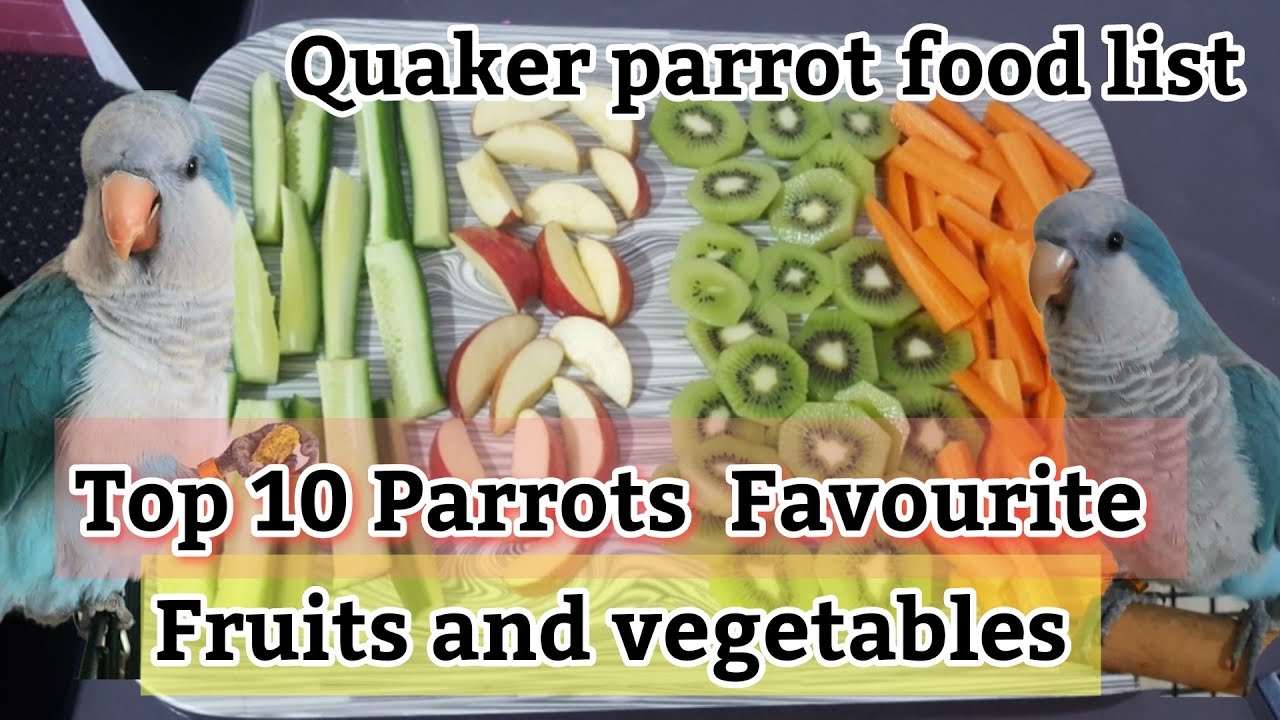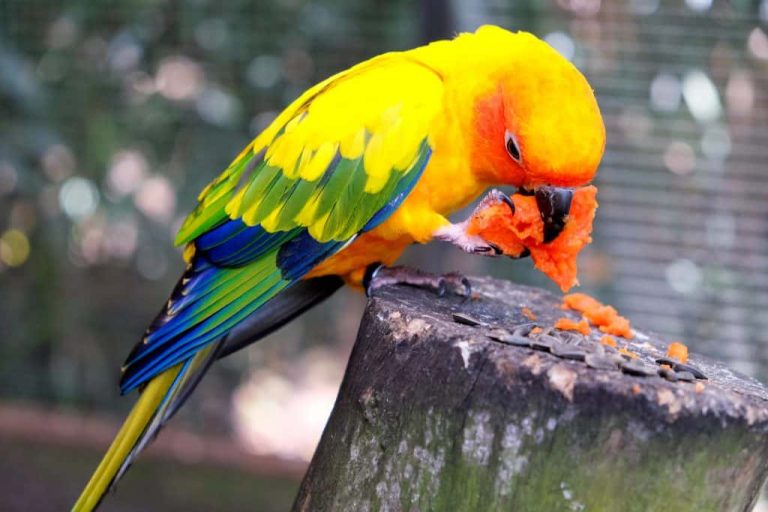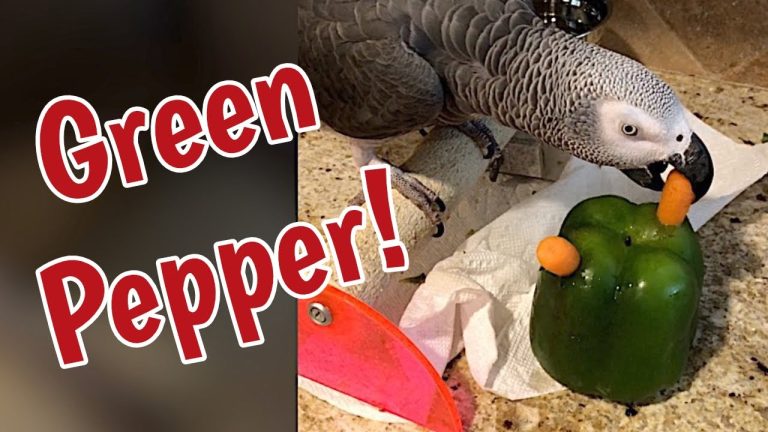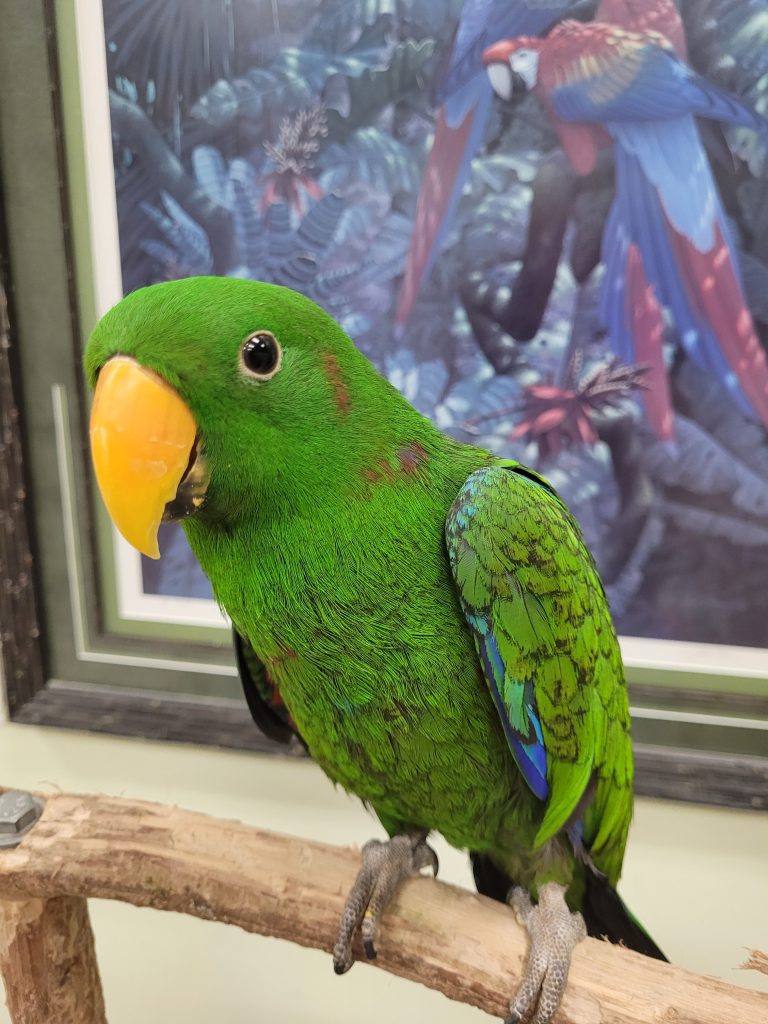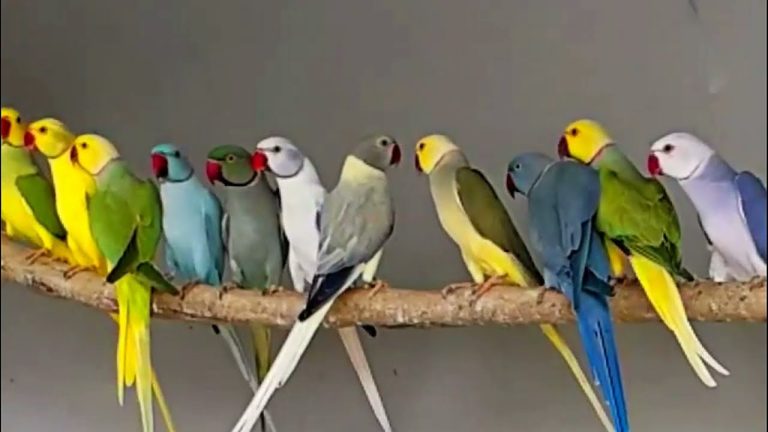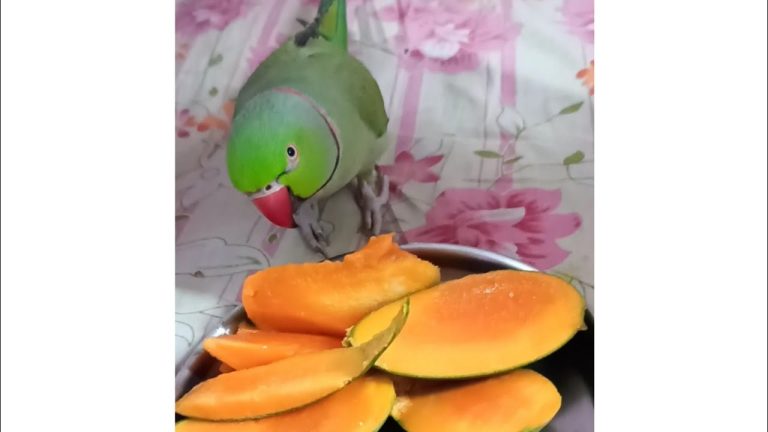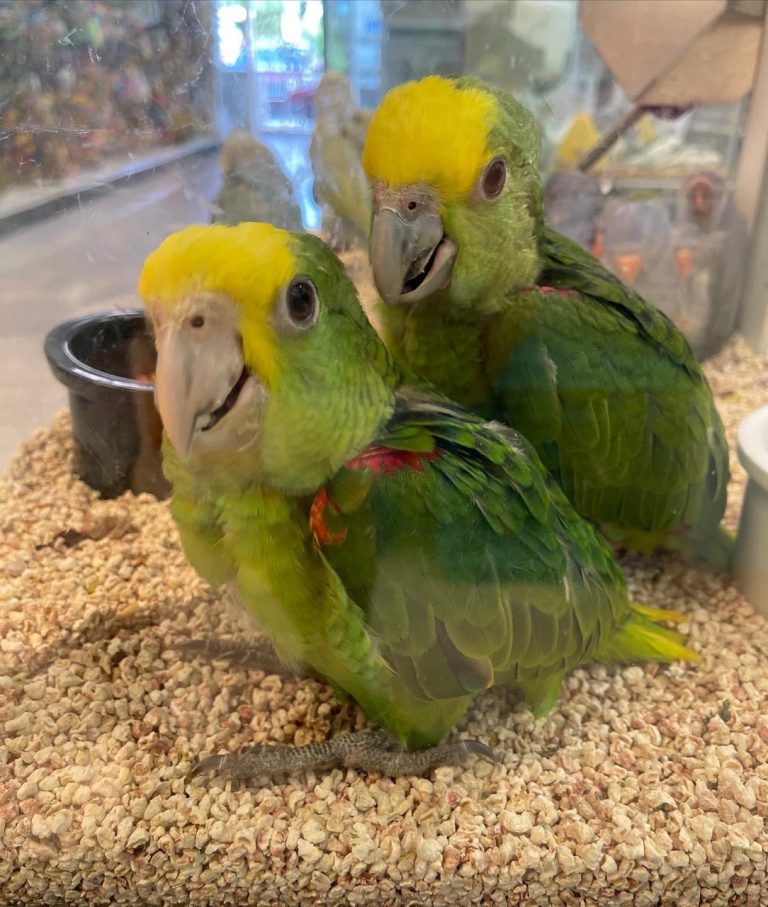What Do Quaker Parrots Eat? [Quaker Parrot Diet 101]
Quaker parrots primarily eat a balanced diet of pellets, seeds, fruits, and vegetables. Fresh foods like leafy greens and berries are essential for their health.
Quaker parrots, also known as monk parakeets, thrive on a varied diet that mimics their natural feeding habits. These social birds enjoy a mix of seeds, pellets, and fresh produce to stay healthy. A well-rounded diet ensures they receive the necessary nutrients for vibrant feathers and optimal energy levels.
Fresh fruits and vegetables not only provide hydration but also important vitamins and minerals. It’s crucial to avoid foods toxic to birds, such as avocado and chocolate.

Credit: www.reddit.com
Natural Diet of Quaker Parrots
Quaker parrots thrive on a varied diet. Understanding their natural eating habits is essential. In the wild, they consume seeds, fruits, and vegetables. This diet keeps them healthy and active. Knowing what they eat helps provide the right food at home.
Wild Foraging Habits
Quaker parrots are skilled foragers. They search for food in trees and bushes. Here are some key points about their foraging habits:
- They often travel in flocks.
- Foraging typically occurs early in the morning.
- They use their beaks to crack open seeds and nuts.
- Quakers are curious and explore their surroundings.
Foods In Their Native Environment
In their natural habitats, Quaker parrots enjoy a variety of foods. Some common items include:
| Food Type | Examples |
|---|---|
| Seeds | Sunflower seeds, millet, and grass seeds |
| Fruits | Apples, berries, and mangoes |
| Vegetables | Carrots, peas, and leafy greens |
| Nuts | Almonds, walnuts, and hazelnuts |
These foods provide essential nutrients. Quaker parrots need vitamins and minerals for strong bones and feathers. A diverse diet supports their overall well-being.
Providing similar foods at home benefits pet Quaker parrots. Ensure their diet mirrors their natural feeding habits. This keeps them happy and healthy.
Feeding Quaker Parrots In Captivity
Feeding Quaker parrots in captivity requires careful thought. Their diet should mimic what they eat in the wild. A balanced diet helps them stay healthy and active.
Mimicking Natural Diet
Quaker parrots are native to South America. In the wild, they eat seeds, fruits, nuts, and vegetables. Captive parrots need similar foods to thrive.
Here are some key components of a natural diet:
- Seeds: Various seeds provide essential fats and proteins.
- Fruits: Fresh fruits add vitamins and hydration.
- Nuts: Nuts are high in energy and healthy fats.
- Vegetables: Leafy greens and colorful veggies offer nutrients.
Safe Foods for Captive Quakers
Not all foods are safe for Quaker parrots. Some can be harmful or toxic. Here’s a list of safe foods for your pet:
| Food Type | Examples |
|---|---|
| Fruits | Apple, banana, berries, mango |
| Nuts | Almonds, walnuts, pistachios |
| Vegetables | Carrots, spinach, broccoli, bell peppers |
| Seeds | Sunflower seeds, millet, safflower seeds |
Introduce new foods slowly. Monitor your Quaker’s reaction. Always wash fruits and vegetables before serving.
Avoid feeding Quakers these foods:
- Avocado
- Caffeine
- Chocolate
- Alcohol
Feeding your Quaker a varied diet keeps them happy. Healthy eating habits ensure a long, fulfilling life.

Credit: www.youtube.com
The Role Of Pellets In A Quaker Parrot’s Diet
Pellets play a crucial role in a Quaker parrot’s diet. They provide balanced nutrition. Pellets contain essential vitamins and minerals. They ensure your parrot stays healthy and active.
Selecting The Right Pellets
Choosing the right pellets is vital. Here are some factors to consider:
- Quality Ingredients: Look for natural, whole ingredients.
- Avoid Artificial Additives: Stay away from colors and flavors.
- Size Matters: Choose pellets sized for small to medium birds.
- Brand Reputation: Pick well-known brands with good reviews.
Check the label for a balanced nutrient profile. Pellets should include:
| Nutrient | Importance |
|---|---|
| Protein | Supports muscle health and growth. |
| Vitamins | Boosts immune function. |
| Minerals | Enhances bone strength and overall health. |
Pellet To Fresh Food Ratio
Maintaining the right ratio is important. The ideal pellet to fresh food ratio is:
- 70% Pellets
- 30% Fresh Fruits and Vegetables
This balance ensures your parrot gets all necessary nutrients. Fresh food adds variety and hydration. Always wash fruits and vegetables thoroughly before serving.
Monitor your Quaker parrot’s weight and health. Adjust the ratio if needed. Keep track of your bird’s preferences. This helps in providing a balanced diet.
Importance Of Fruits And Vegetables
Fruits and vegetables are essential for Quaker parrots. They provide vital nutrients and hydration. A diverse diet supports their health and happiness.
These foods help maintain a shiny feather coat and strong bones. They also boost the immune system, keeping your parrot active.
Recommended Varieties
Choosing the right fruits and vegetables is crucial. Here are some recommended options:
| Fruits | Vegetables |
|---|---|
| Apples | Carrots |
| Bananas | Spinach |
| Grapes | Broccoli |
| Mangoes | Bell Peppers |
| Blueberries | Kale |
These options provide a mix of vitamins and minerals. Offer a variety to keep meals exciting.
Preparation And Serving Suggestions
Proper preparation enhances the health benefits. Follow these tips:
- Wash all produce thoroughly.
- Cut fruits and vegetables into small, manageable pieces.
- Avoid seeds and pits, as they can be harmful.
- Serve fresh foods daily for maximum nutrition.
Rotate different fruits and vegetables each week. This keeps your Quaker parrot interested and satisfied. Monitor their preferences. Always ensure fresh water is available.
Seeds And Nuts: A Treat Or A Staple?
Quaker parrots enjoy a variety of foods. Among their favorites are seeds and nuts. These can be tasty treats or a regular part of their diet. Understanding their nutritional value is key.
Types Of Seeds And Nuts
Quaker parrots thrive on diverse seeds and nuts. Here are some popular choices:
- Sunflower Seeds: High in fat, loved by many birds.
- Safflower Seeds: A healthier option, lower in fat.
- Pumpkin Seeds: Rich in nutrients and fiber.
- Almonds: Great source of healthy fats.
- Pistachios: Fun to crack open and nutritious.
These seeds and nuts provide essential fats and proteins. Balance is crucial. Too many can lead to obesity.
Moderation And Sprouting
Feeding seeds and nuts in moderation is important. Overindulgence can harm your parrot’s health.
Consider these tips:
- Limit seed intake to 10-15% of their diet.
- Include fresh fruits and vegetables as main foods.
Sprouting seeds is another great option. It boosts nutrition and makes them easier to digest.
Follow these steps for sprouting:
1. Soak seeds in water for 8-12 hours. 2. Rinse and drain the seeds. 3. Place them in a jar with air circulation. 4. Rinse daily until sprouts appear.
Sprouted seeds are full of vitamins. Quaker parrots will enjoy them even more!
Ensuring A Balanced Diet
Feeding your Quaker parrot a balanced diet is crucial. It helps them stay healthy and happy. A well-rounded diet includes various foods that provide essential nutrients. This ensures your parrot thrives and has a long life.
Vitamins And Minerals
Vitamins and minerals play a vital role in your parrot’s diet. Here are some key nutrients:
| Nutrient | Benefits |
|---|---|
| Vitamin A | Supports vision and immune function. |
| Vitamin D3 | Aids calcium absorption for strong bones. |
| Calcium | Essential for bone health and muscle function. |
| Iron | Important for blood health and energy. |
Include fresh fruits and vegetables. They are excellent sources of vitamins. Leafy greens and carrots are favorites. Avoid feeding only seeds; they lack essential nutrients.
Avoiding Nutritional Deficiencies
Nutritional deficiencies can lead to serious health issues. Monitor your parrot’s diet closely. Here are some tips to avoid deficiencies:
- Provide a variety of foods.
- Include pellets specifically designed for parrots.
- Limit high-fat and sugary treats.
- Offer fresh water daily.
Watch for signs of health problems. Symptoms include feather plucking or lethargy. Consult a vet if you notice any changes. Regular check-ups can help catch issues early.
Foods To Avoid
Quaker parrots have specific dietary needs. Some foods can harm them. Knowing what to avoid is crucial for their health.
Toxic And Harmful Substances
Some foods are extremely dangerous for Quaker parrots. These can cause serious health issues. Here are the main toxic foods:
- Avocado: Contains persin, which is toxic to birds.
- Caffeine: Found in coffee and tea; it can be fatal.
- Chocolate: Contains theobromine; harmful to pets.
- Onions and Garlic: Can damage red blood cells.
- Alcohol: Even small amounts can be lethal.
Common Household Dangers
Many common items pose risks to Quaker parrots. Keep these items away from their reach.
| Item | Danger |
|---|---|
| Plastic | Can cause choking or intestinal blockage. |
| Non-stick Cookware | Can release toxic fumes when heated. |
| Houseplants | Many are toxic, like philodendrons and pothos. |
| Cleaning Supplies | Fumes can be harmful or fatal. |
Keep your Quaker parrot safe by removing these dangers. Always double-check any food or item before offering it to them.
Hydration And Water Quality
Quaker parrots need fresh water to stay healthy. Proper hydration is crucial for their well-being. Clean water supports digestion, metabolism, and overall health. Always monitor the water quality to prevent issues.
Importance Of Clean Water
Clean water is vital for Quaker parrots. Here are some reasons why:
- Prevents dehydration.
- Supports healthy feathers.
- Promotes good digestion.
- Reduces the risk of disease.
Dirty water can lead to health problems. Regularly change the water to keep it fresh. Aim to provide water daily. Use a clean bowl to avoid contamination.
Water Supplements And Treatments
Sometimes, Quaker parrots need extra help. Here are some options:
| Supplement/Treatment | Purpose |
|---|---|
| Electrolyte Solutions | Replenish lost salts and minerals. |
| Water Purifiers | Remove harmful chemicals and bacteria. |
| Vitamin Drops | Enhance overall health and immune system. |
Check with a vet before using supplements. Ensure all products are safe for birds. Keep your Quaker parrot hydrated and healthy.
Observing Your Parrot’s Eating Habits
Watching your Quaker parrot eat is important. Their eating habits reveal their health. Changes in appetite can indicate problems. Understanding what and how much they eat helps you care for them.
Monitoring Food Intake
Track your parrot’s food consumption daily. Measure their pellets, seeds, fruits, and vegetables. Here are some tips:
- Use a scale to weigh food portions.
- Observe how quickly they eat.
- Check for leftover food.
Record their intake in a journal. Note any changes over time. This information helps you understand their needs.
Signs Of A Healthy Diet
A balanced diet keeps your Quaker parrot healthy. Look for these signs:
| Sign | Description |
|---|---|
| Bright feathers | Healthy, vibrant feathers indicate proper nutrition. |
| Active behavior | An energetic parrot shows good health. |
| Regular droppings | Consistent droppings suggest a balanced diet. |
Watch for signs of discomfort. Loss of appetite can mean illness. Consult a vet if you notice any issues.
Common Dietary Problems In Quaker Parrots
Quaker parrots can face serious dietary problems. These issues can affect their health and happiness. Understanding these problems helps in providing a better diet.
Obesity And Malnutrition
Obesity is a common issue among Quaker parrots. It often stems from a diet high in fat and low in nutrients.
- Signs of obesity include:
- Difficulty flying
- Fat deposits around the body
- Excessive lethargy
Malnutrition occurs when parrots lack essential vitamins and minerals. This can lead to:
- Feather plucking
- Weak immune system
- Bone health issues
Both obesity and malnutrition can shorten a parrot’s lifespan. Proper diet is vital for their well-being.
How To Adjust Your Parrot’s Diet?
Adjusting your Quaker parrot’s diet requires careful planning. Follow these steps for a healthier diet:
- Choose high-quality pellets. Look for brands with natural ingredients.
- Add fresh fruits and vegetables. Offer a variety each day.
- Limit seeds and nuts. Offer them only as occasional treats.
- Provide fresh water daily. Clean the water bowl regularly.
Monitor your parrot’s weight. Regular vet check-ups help track their health. Adjust portions based on activity levels. A balanced diet supports a happy and healthy Quaker parrot.
Consulting With Avian Experts
Consulting with avian experts is crucial for your Quaker parrot’s health. They provide guidance on proper nutrition and overall care. Understanding what your parrot eats helps ensure a long, happy life.
When To Seek Professional Advice?
Watch for signs that your Quaker parrot may need help. Seek professional advice if you notice:
- Changes in eating habits
- Weight loss or gain
- Unusual behavior or lethargy
- Feather plucking or other skin issues
Early intervention can prevent serious health issues. Regular check-ups keep your bird healthy and happy.
Working With An Avian Vet
Choosing the right avian vet is key. They specialize in bird care and nutrition. Here are tips for finding a good vet:
- Look for an avian specialist.
- Check reviews from other bird owners.
- Ask about their experience with Quaker parrots.
During visits, discuss your parrot’s diet. A vet can recommend:
| Food Type | Benefits |
|---|---|
| Pellets | Complete nutrition for growth and health |
| Fruits | Vitamins and hydration |
| Vegetables | Essential minerals and fiber |
| Nuts | Healthy fats for energy |
Follow your vet’s advice closely. They can help tailor a diet specific to your Quaker parrot’s needs. Regular consultations ensure your bird thrives.
Frequently Asked Questions
What Fruits Can Quaker Parrots Eat?
Quaker parrots enjoy a variety of fruits like apples, bananas, and berries. Always remove seeds and pits.
Can Quaker Parrots Eat Seeds?
Seeds are a part of their diet but should be given in moderation to prevent obesity and nutritional imbalances.
Is It Safe To Feed Them Vegetables?
Yes, Quaker parrots can eat many vegetables, including carrots, spinach, and bell peppers, providing essential nutrients.
What Should Be Avoided In Their Diet?
Avoid avocados, chocolate, and high-fat foods, as they can be toxic or harmful to Quaker parrots.
What can Quaker parrots eat?
Quaker parrots can eat a variety of foods that help keep them healthy. Fresh fruits like apples, berries, and bananas are great options. Vegetables such as carrots, spinach, and broccoli are also important. Grains like oats, quinoa, and brown rice provide energy. You can offer them pellets made for parrots, which ensure they get the right nutrients.
Happy feeding!

